Jake Ridley, CFP®
Jump to a Section
An Epiphany
I’d read these two verses many times but had never seen it. But one evening during small group my friend, Michael, pointed them out and the scales fell from my eyes.
These two verses were jam-packed with the gospel, grace, wisdom, initiative, and many, many other powerful lessons. But somehow, I’d never seen it. Now that I have, though, this ranks as one of my favorite examples of generosity in the Bible.
What two verses am I talking about? It’s the story of the Antioch Christians’ generosity found in Acts 11:29-30. Why is this story so incredible? Let’s explore.

A History of Division
To truly appreciate the beauty of this passage, you’ve got to understand the historical context. The Jews and Gentiles had a long history of division.
Antioch
First, Antioch was a hugely influential Roman city. In fact, it was the third largest city in the entire Roman empire “in size and importance”. It had everything the Romans valued: temples, chariot races, aqueducts, baths, etc. It was Roman through and through – the epitome of a Roman city. And these Gentiles in Antioch were becoming increasingly hostile towards the Jews.
In fact, around 40 A.D., there is an organized slaughter of many Jews in Antioch. This was also around the time the Roman emperor, Caligula, attempted to install his image in the Jewish Temple. In short, Jewish and Roman hostilities were hitting a boiling point and Antioch was certainly experiencing the effects of this.
A funny thing happens along the way, though. Some Gentile Antiochians embraced the gospel of a Jewish Messiah. Their eyes are opened to the goodness and grace of the King of the World and “a large number of these Gentiles believed and turned to the Lord (Acts 11:21)”. Word then gets back to Jerusalem (the early church’s home base), and they send one of their most trusted leaders, Barnabas, to investigate. Sure enough, God’s Holy Spirit is clearly with them, proving God had indeed accepted these Gentiles into his community.

Jerusalem
What about the Jewish believers – what did they think of those Gentiles in Antioch? They were skeptical to say the least. Only several verses earlier at the beginning of Chapter 11, the Jewish believers “criticized” Peter for entering the home of a Gentile (Cornelius) and “even eating with them!” They certainly did not receive these new believers with open arms. In fact, this entire section of Acts is about how the early Jewish church resisted the thought of including Gentiles (like those in Antioch).
The inclusion of Gentiles is the debate the believing Jewish people wrestled with. So much so, that Acts 15 records an official council to determine what – if anything – Gentiles should do to be considered a part of God’s community. It was a long, slow, and fiercely debated process just to include these Gentile believers in their community.
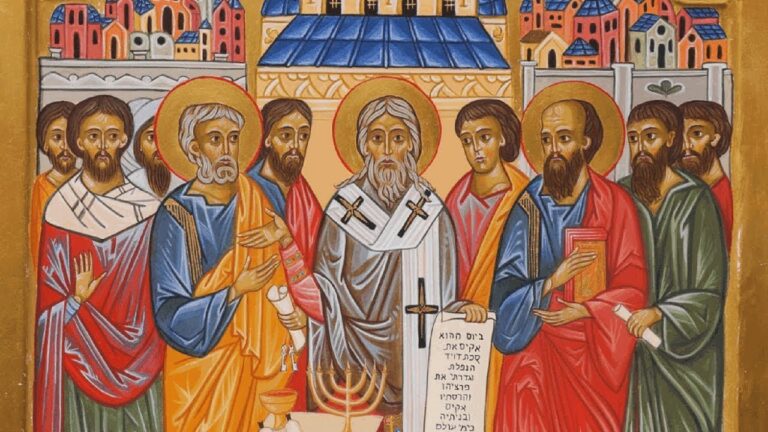
Antioch’s Generosity
In the middle of all this, famine was coming to Jerusalem. According to the NET Bible “This famine is one of the firmly fixed dates in Acts. It took place from a.d. 45-48. The events described in chap. 11 of Acts occurred during the early part of that period.” So, we’ve got a deep ethnic divide and now a famine. What are the Gentile Christians in Antioch doing during this contentious time? Figuring out how to care for their “brothers” in Jerusalem. These “brothers” are the Jews that just a few verses previously were blasting Peter for simply eating with the Gentiles. Holy cow. Talk about convicting. What an incredible picture of grace. What an incredible picture of putting the gospel into practice.
It’s like all the lessons of the gospel rolled into one. Loving your historical “enemy”? Check. Loving your neighbor as yourself? Check. Seeing your possessions not as your own but a gift from God? Check. Using that gift as a tool to help others? Check. Am I my brother’s keeper? Yes. I could go on and on. As a matter of fact, these folks in Antioch were so Christ-like, Antioch is the first recorded example of these followers being called “Christians” (Acts 11:26). If you ever need a reminder of what true generosity looks like, bookmark Acts 11. And given this inspiring example, what are some gifting principles we can apply? Let’s look at a few.
Giving Like Those in Antioch
1. They Took Ownership and Initiative
The future famine was predicted by a representative of the Jerusalem church that had traveled to Antioch. Rather than expect someone else to solve the problem, the Christians in Antioch took ownership and initiative. They didn’t wait for someone else to solve the problem. They immediately organized a collection.
2. They Saw Them as “Brothers”
The Christians in Antioch considered the believers in Jerusalem to be their “brothers”. The gospel had fundamentally changed their perspective. Rather than thinking the Jewish believers should solve their own problems (Am I my brother’s keeper?), they saw them as part of their family. Who is my neighbor? Anyone made in the image of God (that’s everybody).
3. They Gave Proportionally
Each person in Antioch gave “according to his ability”. This comes from an understanding of the source of your wealth. The Antioch Christians clearly understood the source of their blessings shown in their ability to freely gave in proportion to what God had given them.
4. They Gave Wisely
Once they collected the gifts, they made sure it got to where it was supposed to go. How did they do that? By entrusting it to Paul and Barnabas. This gift was not a conscience salve or to assuage their guilt. They weren’t playing around. They wanted to make sure the gift got to its intended destination.
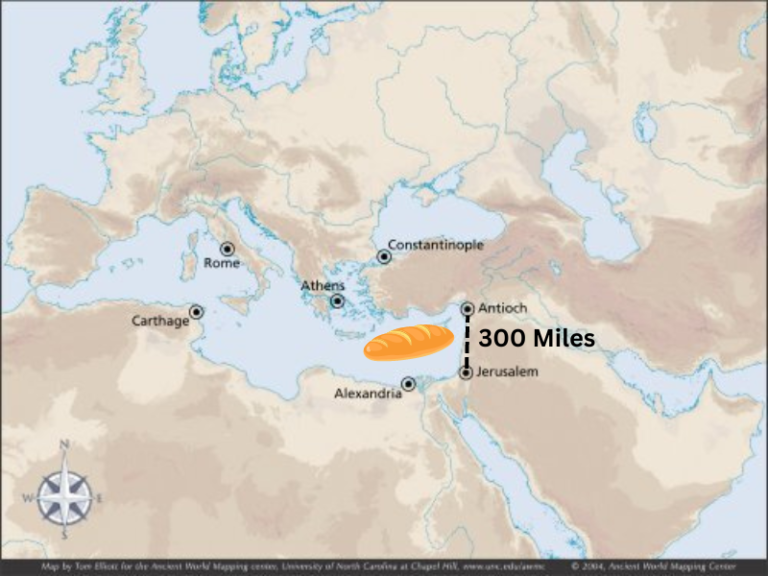
How Not to Give
The Christians in Antioch set the standard for heartfelt, God-honoring, effective generosity. How does this compare to the world’s response? Funny enough, Acts 12 tells the story of how the folks in Tyre and Sidon tried to solve their food problems. They sent a delegation to Herod Agrippa to “persuade” him for peace because “their country depended on Herod’s country for food.”. They likely negotiated, postured, flattered, and all the things delegates do when they are angling to get their stuff.
King Agrippa then uses their vulnerability as political leverage over Tyre and Sidon; using this as an opportunity to gain praise. Unfortunately for King Agrippa, he died “after being consumed by worms” while basking in the glory of others calling him “a god”. Not a good way to go. This is how not to give; to gain leverage, or to garner praise and recognition. What a stark contrast between those in Antioch. I have to believe these stories are set closely together intentionally, by the author Luke, as a comparison.
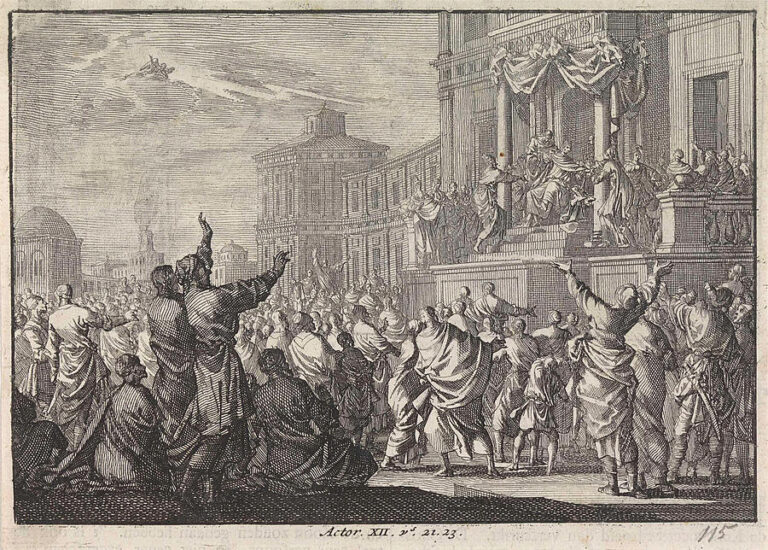
An Inspiration in Generosity
The Antioch Christians set the standard for proactive, grace-filled giving. They “got it”. They understood grace; not holding a grudge against those who very recently were debating their inclusion. They understood love, considering the Jewish believers as “brothers”.
They took initiative; they heard about a problem and went right away to solving it. In these and in many other ways they presented the model in Christian charity.
If you’re ever wondering what effective giving looks like, don’t skip over these two verses at the end of Acts 11 – what an inspiration.
Disclosure: The views expressed in this article are those of the author as an individual and do not necessarily reflect the views of the author’s employer Astoria Strategic Wealth, Inc. The research included and/or linked in the article is for informational and illustrative purposes. Past performance is no guarantee of future results. Performance reported gross of fees. You cannot invest in an index. The author may have money invested in funds mentioned in this article. This post is educational in nature and does not constitute investment advice. Please see an investment professional to discuss your particular circumstances.
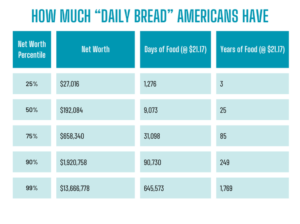
Most Americans have 25 years of “daily bread” stored up in their accounts. So, what does it actually mean for us to pray for “daily bread”?
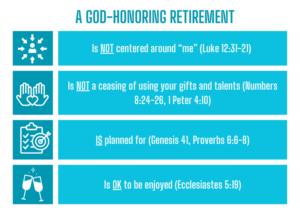
Is the American dream of retirement actually a tragedy? Let’s look at what the Bible has to say about it.

Don’t take it for granted when your investment fortitude pays off. Store it in your memory bank and build that resilience muscle for when (not if) the next downturn comes.

Why I am a fee-only advisor in Round Rock, Texas (the best town in America).
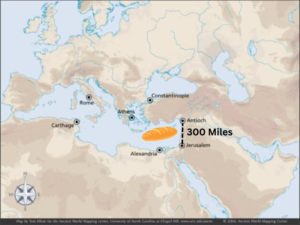
These two verses in Acts describe one of the most inspiring stories of generosity in the Bible.
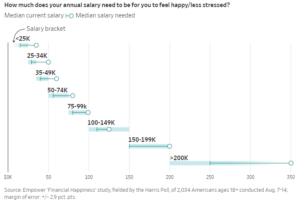
Can a Christian enjoy money? Much has been (rightly) written about the dangers of money. But what about enjoying money?
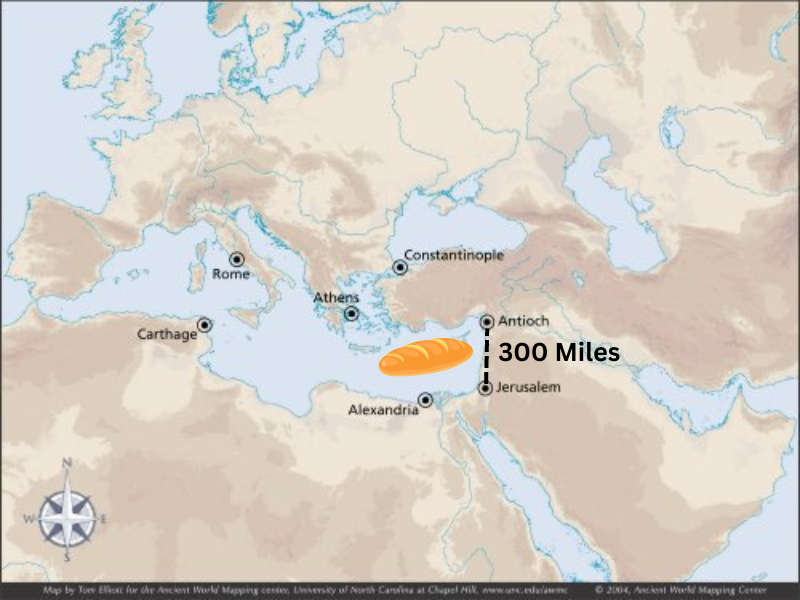
Pingback: Worried About Money? Three Bible Passages That Address Money Fears - Church Fiduciary
Pingback: Can a Christian Enjoy Money? [A Discussion of Ecclesiastes 5:19] - Church Fiduciary